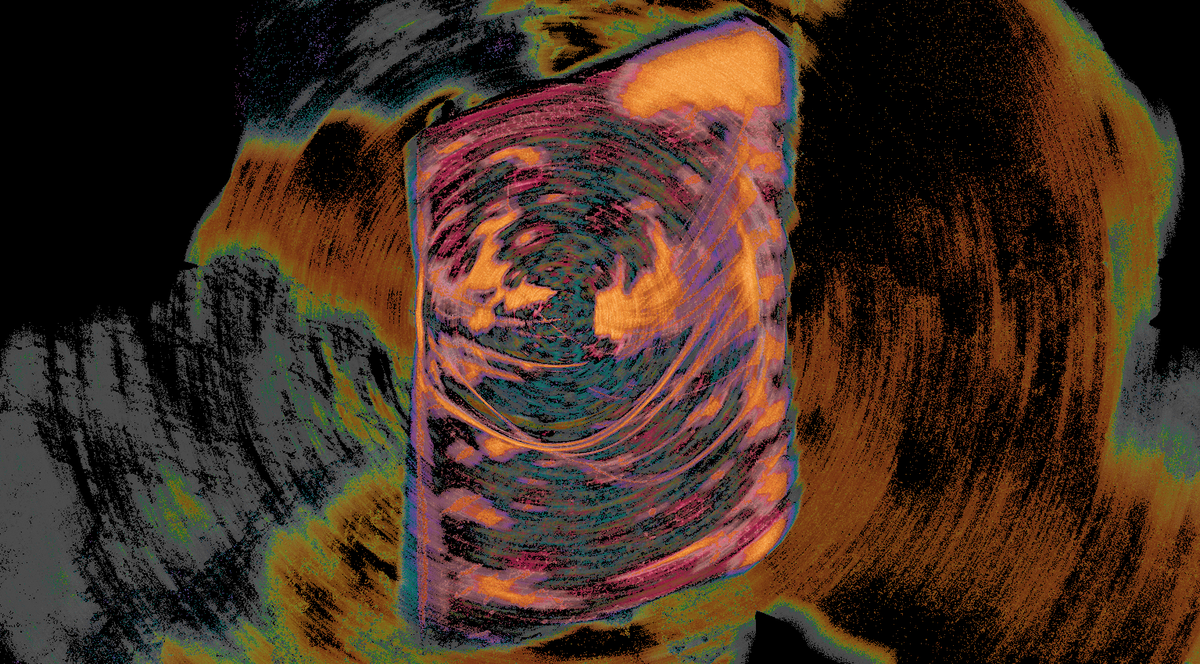A person is not defined by their language. Language is indeed a component of one's geopolitical and cultural context, but it does not represent the individual; a language does not equate to a nation. This is particularly evident today, as many people have grown up speaking English due to its global reach and media influence, despite not being surrounded by native English speakers. Speaking English doesn't inherently make someone English, just as living under British colonial rule doesn't confer English identity. It merely indicates the influence of British hegemony, a phenomenon also observed with the French and the Ottomans.
For example, an Armenian speaking Turkish natively and not knowing Armenian can be surprising to some, due to a narrow, nationally segregated perspective. However, this situation is a reality; many Armenians predominantly spoke Turkish and engaged in their cultural and creative pursuits in this language. Similarly, there are some Central Asians or Belarusians etc. who can't speak their national languages but are fluent in Russian. The language one speaks does not determine their nationality.
Language does indeed introduce individuals to broader and more dominant cultures, potentially influencing their thoughts and cultural identities. In Turkey, for instance, being Turkish is not solely about ethnicity. Turkish nationality encompasses a myriad of cultural spheres. Despite efforts by the modern Turkish government to homogenize the nation by discouraging the use of mother tongues and diverse identities, the remnants of various old cultures persist. These remnants reflect the diverse backgrounds of people who were once part of the Ottoman Empire, originating from regions now known as Romania, Greece, Serbia, Macedonia, Croatia, Georgia, Crimea, Syria, Iraq, and others.
This diversity, which has been significantly subdued in contemporary Turkish culture, is a testament to the complex history of the region. Many Turkish citizens have ancestors who never lived in what is now modern-day Turkey, and some of these ancestors might have been unfamiliar with Anatolia. This situation aligns with the global wave of nationalism that emerged in the 19th and 20th centuries, emphasizing homogenized national identities. Viewing Turkish as an umbrella term, similar to American or Canadian, can aid in understanding the diverse origins and distinctions within the population. This perspective acknowledges the varied appearances, regional differences, and ancestral connections that contribute to the rich tapestry of modern Turkish society.
Nationalism can unify people under a common identity, often creating a sense of belonging and control among the populace. This sentiment can lead individuals to align closely with their governing bodies, sometimes to the extent of sacrificing their lives, under the belief that they are in control rather than being under a monarchy. Nationalism typically requires a common enemy or identity to rally against, leading to the homogenization of diverse groups within designated national borders. While I won't delve deeply into nationalism, it's important to note that people with diverse ancestries, like myself, continue to exist within such frameworks.
As someone with multiple ancestries, pinpointing a single geographic identity is challenging. For example, identifying as Arab-speaking from Mardin often confuses those who expect Arab speakers to originate from traditional Arab-speaking countries. However, historical boundaries were fluid, and many communities predated the drawing of contemporary borders. The concept of the Arab speaker doesn't necessarily correlate with being ethnically Arab. Arabic served as a lingua franca in the Mesopotamian region, and Arab culture varies significantly across different areas, even within what is generally referred to as the Arab world.
The term "Arab" itself is multifaceted. For instance, Moroccans and Algerians might not identify as Arab, which is a valid perspective. Those advocating for an Arab identity in these regions aren't entirely misguided, considering the historical Arabization in Morocco and Algeria. However, comparing these cultures with each other or with the Arabian Peninsula reveals distinct differences and cultural diversities, despite their shared language and cultural influences.
The process of Arabization nearly replaced local identities in regions like Morocco and Algeria, although remnants of their diverse original cultures still exist. Consider an indigenous Moroccan under Arab rule, who adopted Arabic as their language and whose culture was heavily influenced by Arab culture. Moving on, let's examine the Greeks, Albanians, and Armenians under Ottoman rule. The influence of Ottoman culture is evident in their dress, behavior, and cuisine, with many shared dishes and cultural elements. For example, Albanians in Turkey assimilated to such an extent that they lost their native language and now identify more as Turkish than Albanian. Similarly, other ethnic groups like Bosnians, Bulgarians, Greeks, and Armenians, to varying degrees, adopted a Turkish identity. (This is not to say that Turkic people didn't exist or to disprove anything; it's merely to highlight the diversity of peoples.) The similarities and parallels between these two distinct yet similar cultural hegemonies show that people were not homogeneous. Having a certain name doesn't mean you fully embody that identity. History is not as linear as many would like to believe.
A linear history of Turkey posits that Turks originated in Central Asia, then moved to Anatolia uninterrupted, eventually becoming the Turkish people we know today. This perspective, however, oversimplifies the complex reality. In truth, Central Asian Turkic peoples, who migrated to Anatolia, had already interacted with neighboring cultures, such as those in Iranian lands and under Islamic influence. They settled in Islamic empires, adopting local customs before moving to Anatolia. During this period, other migration waves from Central Asia occurred independently.
With the rise of the Ottoman Empire, the territory inhabited by Turks expanded, encompassing diverse groups like Arabs, Armenians, Greeks, and others, all living within Ottoman borders and under its cultural hegemony. This influence continued until the empire's decline. During these times, due to social mobilization and other factors, many people converted to Islam and gradually assimilated into Turkish culture, leaving behind their ancestral faiths. In the Ottoman Empire, people were distinguished not by their language or culture but by their religious affiliation – for instance, membership in the Armenian Church denoted an Armenian identity. Converting to Islam often led to identification with Kurdish or other Muslim groups, including Turks, depending on the region.
This historical context explains the strong ethnonationalist perspective on Armenians as Christians and Assyrians as exclusively belonging to Christianity, as religious affiliation played a crucial role in defining ethnic groups within the empire.
Regarding the presence of Arabs in Mardin, an Assyrian city, one might wonder how they arrived there and adopted Arab identity. The striking similarities between the Assyrians of Mardin and the Arabs of Mardin challenge the perception of Arabs as foreign to these lands. This scenario illustrates how national labels and identities can be fluid and not entirely reflective of reality. The necessity for people to abandon their cultures and faiths for survival or other benefits further complicates these identities.
For instance, the Jesus rugs on my grandmother's walls are not exclusively Arab, Muslim, or Turkish; they belong to a different culture. Their popularity among both Muslims and Christians, and my family's reverence for Jesus (whom many Muslims acknowledge as a prophet, though not to the extent of displaying his imagery), highlights the unique cultural blend in our region.
The distinct dialect of Arabic spoken here, different even from that of Northern Iraq, which is geographically closer to Mardin, is another example of this cultural diversity. Such linguistic variations underscore the uniqueness of each community.
Therefore, categorizing the cultural identity of my people as solely Turkish, or homogeneously Turkish, seems bizarre. Describing these people as descendants of Central Asians or simply as Arabs is equally misleading. Even the notion that the Arabic Islamic empire solely spoke or wrote in Arabic is an oversimplification, given the historical prevalence of the Aramaic language and Syriac script in the region. This doesn't necessarily make Arabs Aramaic, but it does illustrate the cultural complexity of the region. Differences among Arab speakers in Turkey, such as those in Mersin versus Siirt, are still evident and signify the rich cultural diversity that exists within the country.
In another aspect of my cultural identity, which is not tied to geography, is the presence of Serbian, Greek, and South Italian relatives in my family. This is a result of another part of my family lineage, which had no connection to Anatolia or Mesopotamia until the ethnic cleansings within the former Ottoman Empire's borders. My connections to what we now call the Balkans and Greece may seem peculiar for someone identified as "Turkish." This is because my ancestors, like my great-grandmother, were aware of their Serbian and Greek-speaking backgrounds, yet they became Muslims and were compelled to relinquish their cultural belongings and heritage.
Becoming a Muslim in the Balkans didn't erase their unique cultural identities, which remained distinct from those of Muslims in Anatolia. The differences are evident not only in religious practices but also in cultural aspects like alcohol consumption among Balkan refugees in Turkey, or the retention of unique foods and accents among Greek refugees. These aspects highlight the diversity and uniqueness within these groups.
Attempting to simplify the identities of these people to fit into a singular narrative of Central Asian origin is problematic. It reflects linear thinking that fails to account for the complex, non-linear nature of history and human migration. The ethnic and cultural backgrounds of people from these regions cannot be traced back to a single location or culture, underscoring the rich tapestry of identities that transcend simplistic categorizations.
Another part of my ancestry comes from the refugees of the Caucasus. The interesting aspect of my culture and my people is that they originated from various corners of the Ottoman Empire. Growing up amidst the contrasts of the West and the East, surrounded by the nuances of each of my family's backgrounds and the various languages around me, I am expected to disregard all these subtleties and identify solely as Turkish. However, I cannot do this. The cultures I have inherited through my family are unique to me. The issue is that I cannot pin down my people to one specific geographical location, making me an outlier, even among my cousins, who do not share this distinct ancestry.
This uniqueness might be why the efforts to indoctrinate me into being a 'proper Turk' during my schooling years were unsuccessful. I never felt aligned with the expectations of what they deemed a Turk should be. How could I? I was raised amidst diverse cultures and languages, including English and French, introduced to me by my childhood friend and through various media. It's impossible for me to feel a kinship with those around me who do not understand my cultural signifiers. Abandoning these elements of my identity to conform is not an option, especially when such impositions felt hostile and threatening during my childhood. Consequently, I often masked my true identity to avoid conflicts.
I'm unsure of the appropriate term for people like me, although 'third culture kid' comes close, but it doesn't entirely capture my experience. This term somewhat explains how I felt living in Turkey throughout my life, shaped by the diverse cultures I grew up with. The label Mykri is the only one that I can approve. It defines a small subset of distinct culture that happens through one generation or siblings that is a hybrid of more than two distinct cultures, not just nationalities. This is why my nationality is Turkish, but it does not define my ethnicity or culture. I regret that I had to mask my true identity, but whenever I had the opportunity to return home or spend time with family, I felt independent and could express my true self.
This post might be contentious for some, and it's likely that people will attempt to engage in debates, arguing that I am merely this or that, reducing my identity to simplistic labels. But I implore you, brother, to consider the possibility of embracing the complexity of individual backgrounds. Take, for instance, the diversity among Balkan or Greek refugees. These individuals don't hail from a singular city, town, or cultural background. Their experiences and viewpoints are as varied and rich as the regions they come from. It's not just unwise, but also dismissive, to attempt to condense their rich, multifaceted experiences into a single narrative.
In the same vein, it's profoundly misguided to try and force my own cultural identity into a neatly defined box. My heritage, influenced by a mosaic of cultures, languages, and histories, defies simple categorization. It's a blend of influences from across the Ottoman Empire, enriched further by my personal experiences and the unique paths of my ancestors. To ignore this complexity and to label me with a singular identity that doesn't resonate with my lived experience is to deny the very essence of who I am. It's crucial to understand that individual identities, especially in regions as historically and culturally diverse as ours, cannot and should not be oversimplified. Each person's story is a tapestry woven from countless threads, each representing different aspects of their heritage and personal journey.
My saying that I am only Turkish by nationality and not by ethnicity is not against Turkish identities or Turkishness. Please understand that I am only talking about my own identity, my own reality.
Lack of reference or documentation doesn't negate validity or truth. History, personal experiences, and culture often exist without formal evidence but remain significant. Absence of recognition doesn't diminish their importance.





